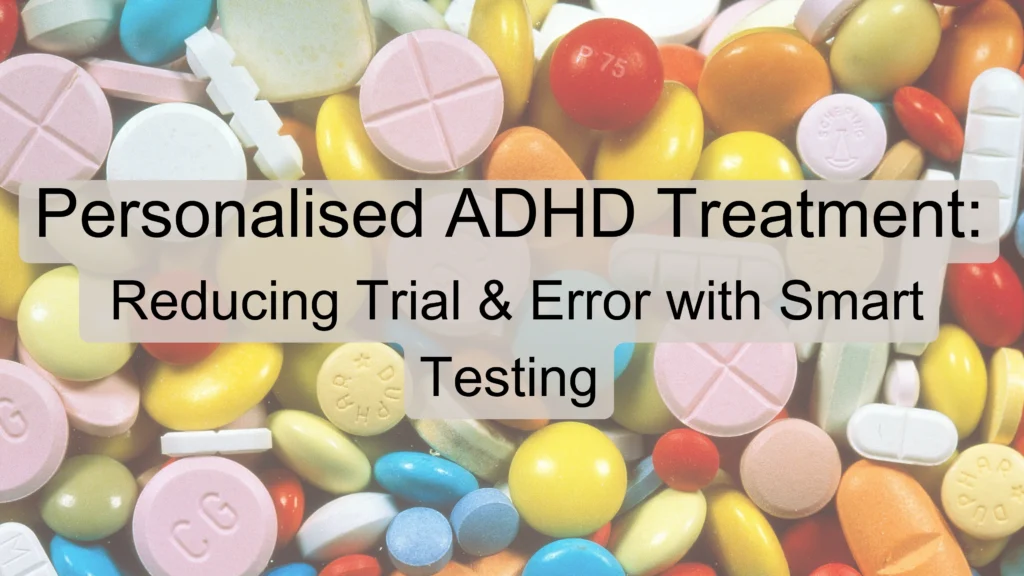Personalised ADHD Treatment: Reducing Trial & Error with Smart Testing
One of the most common frustrations I hear from clients is this: “I feel like a guinea pig. My doctor keeps changing my meds, and nothing seems to work.” If this sounds familiar, you’re not alone. For years, ADHD treatment has relied on a trial-and-error approach. A doctor prescribes one medication, waits to see if it works, then adjusts—or switches entirely. The process can be exhausting.
Why ADHD Treatment Has Been Trial and Error
ADHD is a highly individual condition. What helps one person focus can leave another jittery, anxious, or unable to sleep. Stimulants like methylphenidate or amphetamines work well for many, but not all. Non-stimulants offer alternatives, yet they, too, come with variable responses. This variability has historically meant months—sometimes years—of cycling through options.
The Shift Toward Precision Medicine
In 2025, things are changing. Inspired by breakthroughs in cancer and mental health treatment, researchers are bringing precision medicine into ADHD care. Instead of prescribing blindly, clinicians are beginning to use tools like:
- Genetic testing: identifying how your body metabolises medications.
- Biomarker analysis: measuring brainwave patterns, heart rate variability, or neurotransmitter activity.
- Digital tracking apps: collecting real-time data on sleep, focus, and mood to fine-tune treatment.
As the ADHD advocacy organisation CHADD notes, “The future of ADHD treatment is not one-size-fits-all, but personalised to the individual.”
SIGN UP TO MAILING LIST
Benefits of Smart Testing
- Fewer side effects: By matching meds to metabolism, people avoid the worst mismatches.
- Faster results: Instead of months of guessing, individuals see improvements sooner.
- Greater empowerment: Patients feel part of the process, not subject to it.
Beyond Medication
Personalised ADHD care isn’t just about meds. Coaching, therapy, nutritional support, and lifestyle design all benefit from tailoring strategies to an individual’s unique brain and environment. For example, one client may thrive with structured exercise and mindfulness; another may benefit more from co-working environments and body doubling.
What’s Next?
Precision ADHD care is still emerging, and access varies across countries. But the message is clear: the days of blind trial and error are numbered. If you’re beginning treatment, ask your provider whether personalised testing options are available.
✨ The bottom line? ADHD isn’t a uniform condition, and your treatment shouldn’t be either. Personalisation offers hope for faster, safer, more effective outcomes.
Read next: ADHD as the ‘Third Partner’: Why Your Relationship Feels Like It Has an Extra Person

